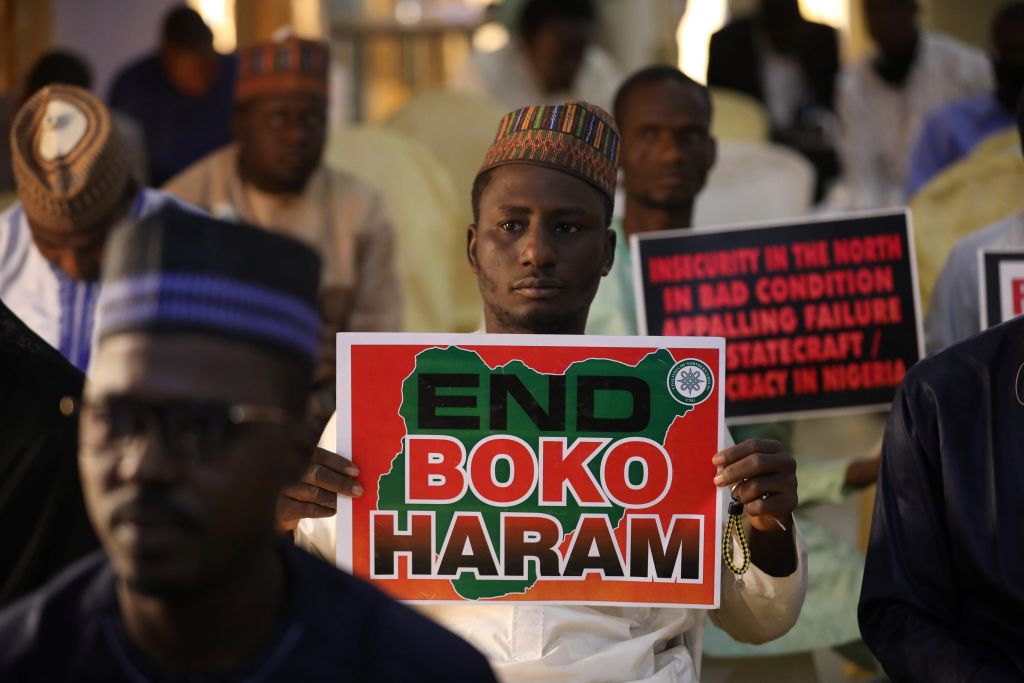ADF STAFF
Boko Haram is keen to expand beyond its strongholds in northeast Nigeria, but fighting among its Jama’atu Ahlis-Sunna Lidda’Awati Wal-Jihad (JAS) and Islamic State West Africa Province (ISWAP) factions may be hampering the terror group’s plans.
Years of infighting among the Islamic State group (IS) affiliates is driven by JAS grievances over the perceived marginalization of the Buduma ethnic group from ISWAP leadership positions which are typically Kanuri-dominated, according to the Institute for Security Studies (ISS).
Another point of contention is how the factions handle civilians, particularly concerning “fey’u,” or loot taken outside combat.
ISWAP forbids the taking of fey’u from Muslim civilians, while JAS authorizes seizing the loot, according to the International Crisis Group. JAS also is known to kidnaps girls and women, and its commanders are known to reward loyal fighters by allowing them to enter coerced marriages with abductees, a practice forbidden by ISWAP.
JAS was reeling in 2021 after its leader, Abubakar Shekau, died during an ISWAP attack on his fortress in the Sambisa Forest in Borno State, after which thousands of JAS fighters surrendered to authorities rather than join ISWAP. However, ISWAP did recruit some JAS fighters, seized its territories and expanded its own means of generating revenue.
“This cemented ISWAP’s position in the Islamic State franchise, making it one of the global terror group’s most successful affiliates,” wrote Malik Samuel, a researcher at the ISS Regional Office for West Africa, the Sahel and the Lake Chad Basin.
But JAS has staged a furious comeback facilitated by the early 2023 defection of influential ISWAP commander Mikhail Usman, or “Kaila,” a Buduma, to JAS, along with other commanders and fighters.
In October 2023, JAS offensives forced ISWAP fighters to evacuate many of their long-held island territories in the Lake Chad area, the ISS reported. Kaila masterminded the attack, knowing that without its Buduma fighters, who live on the lake, ISWAP would struggle in water-based fighting.
“Those familiar with the clashes say JAS now occupies as much as 40% of the islands previously controlled by ISWAP,” Samuel wrote. “But ISWAP maintains control over the mainland in these areas.”
In April, ISWAP offensives reclaimed Tumbun Allura and Falkima-Hakariya.
According to Samuel, the IS has asked for a pause in attacks because ISWAP cannot afford a protracted, deadly confrontation with JAS, which would risk reputational damage to its major affiliate in West Africa. Its other regional franchise, Islamic State in the Greater Sahara, is already being overshadowed by the al-Qaida-linked Jama’at Nusratul Islam Wal Muslimin.
According to the International Crisis Group, ISWAP is currently trying to consolidate its control of areas less threatened by JAS, particularly in central and western Borno State and neighboring Yobe State.
JAS is poised to attack civilians and military targets around Lake Chad and from its other stronghold in the Mandara mountains. The faction also has resumed targeting civilians in Chad’s Région du Lac. It has previously hit Niger’s Diffa region hard, and ICG analysts say it may do so again.
Ongoing military operations across the Lake Chad Basin by the Multinational Joint Task Force and the Nigerian Army are intended to limit the spaces where JAS and ISWAP operate.

